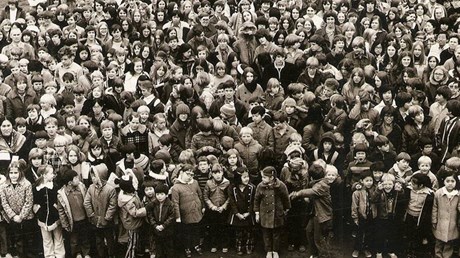Uncovering decades of allegations out of the Christian Academy of Japan, investigators tried new tactics to facilitate repentance and healing.

Decades after dozens of missionary kids suffered physical and sexual abuse at the Christian Academy of Japan (CAJ), mission agency leaders associated with the Tokyo school fell prostrate on the ground to perform dogeza, Japan’s deepest form of apology.
The 13 leaders met with victims at a private retreat in Colorado last fall to hear their stories and offer a formal apology.
“On their knees, heads on their hands, sobbing,” recalled Janet Oates, a 1963 alum of the academy, which was founded in 1950 as a boarding school for missionary children. “Alumni were sobbing too … one moment of justice.”
The moment of repentance followed an unconventional abuse investigation process that involved CAJ alumni acting as consultants and advocates. Alumni like Oates pushed the school and its founding mission agencies to investigate historic abuse in the first place.
The results of the investigation were devastating—turning up 72 cases of alleged abuse from 1957 to 2001. But the recent response has brought a degree of healing for some victims and could demonstrate a new approach for other organizations facing historic abuse allegations.
A number of boarding schools for missionary children have faced records of abuse. Investigations have uncovered mistreatment and mismanagement at a New Tribes Mission school in Senegal, the Christian and Missionary Alliance’s school in Guinea, and Hillcrest School in Nigeria. Few of the 150 schools serving missionary children around the world still offer boarding.
Four years ago, CAJ alumni and victims said they wanted accountability and an apology from the school and the six mission agencies that founded it.
At the retreat last fall where leaders apologized, “the ...
from Christianity Today Magazine
Umn ministry


.gif)

.gif)
.gif)
